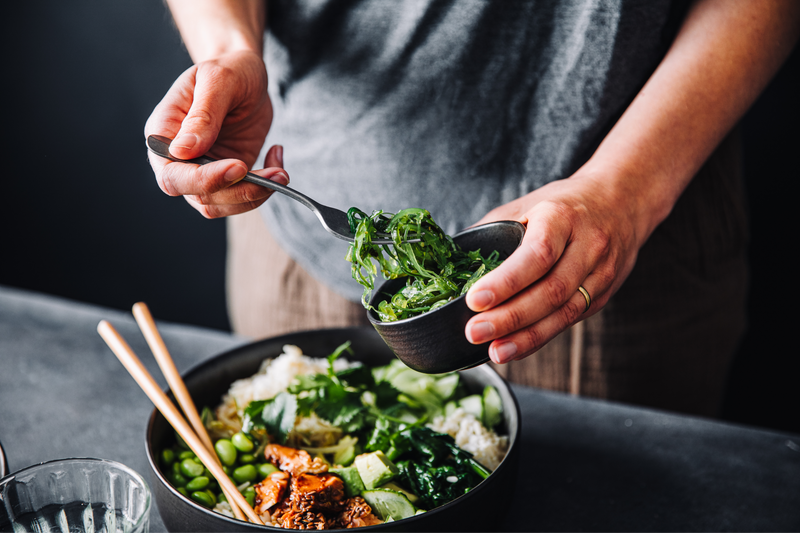If you drink coffee every day, you’re already biohacking.
But are you doing it right?
Caffeine is one of the most powerful—and misunderstood—tools in your wellness toolbox. Whether you're looking for more energy, better workouts, sharper focus, or even a longer life, the way you use caffeine matters.
Let’s break down what it does, how it works, and how to make it work for you.
Goal: I want better focus and brainpower
You’re aiming for sustained mental clarity, sharp concentration, and faster reaction time—without the crash. Whether you're doing creative work, solving complex problems, or simply need to get through a long day of meetings, the goal is to enhance cognitive performance and stay alert.
What to do:
-
Take 100–200mg of caffeine (roughly 1–2 small cups of coffee)
-
On an empty stomach, 30–45 minutes before deep work
-
Optional: Pair with L-theanine (100mg) for calm, focused energy (found in matcha or supplements)
Why it works:
Caffeine blocks adenosine, a brain chemical that makes you feel tired. The result is increased alertness and attention. L-theanine smooths out the experience, reducing anxiety and improving memory performance.
Try it before tasks that require problem-solving, writing, or high-level thinking.
Goal: I want more energy for workouts
You're trying to push harder, last longer, and perform better—whether it’s in the gym, on a run, or during a competitive sport. The objective here is to increase physical energy, reduce fatigue, and improve performance and output.
What to do:
-
Take 3–6mg of caffeine per kg of body weight about 60 minutes before your workout
(For a 70kg/154lb person, that’s 210–420mg—about 2–4 cups of strong coffee or a supplement) -
Drink water alongside it to avoid dehydration
Why it works:
Caffeine boosts adrenaline, improves muscle contraction, and reduces the perception of effort. You can lift heavier, run longer, and bounce back quicker between sets.
Ideal for high-intensity or endurance training. If you train in the evening, consider reducing the dose or skipping to protect your sleep.
Goal: I want to protect my brain long-term
The focus here is on neuroprotection—preventing age-related decline and keeping your brain healthy as you get older. You’re not just trying to feel sharper today but to stay mentally agile for decades to come.
What to do:
-
Drink 1–3 cups of black coffee daily, preferably before 2 PM
-
Make it a consistent habit, not an occasional treat
Why it works:
Regular caffeine intake is associated with a lower risk of cognitive decline, Alzheimer’s, and Parkinson’s. Antioxidants and polyphenols in coffee reduce inflammation and protect neurons from damage over time.
A daily morning cup or two is all it takes to support your brain health.
Goal: I want to live longer
This goal is about increasing healthspan, not just lifespan—meaning more healthy, active years. The aim is to reduce your risk of chronic illness, improve cardiovascular health, and support metabolic function.
What to do:
-
Drink 2–4 cups of black coffee per day
-
Choose filtered coffee to reduce LDL cholesterol
-
Avoid sugar, syrups, or heavy creamers
Why it works:
Multiple studies link moderate coffee intake with lower all-cause mortality and a reduced risk of heart disease, stroke, type 2 diabetes, and some cancers. Even decaf shows similar benefits, suggesting it's not just the caffeine—it’s also the antioxidants and other compounds.
Consistency is key here. Your coffee habit can become a protective part of your lifestyle—if it stays clean and balanced.
But wait—what about the downsides?
Caffeine is powerful, and too much can work against you. Here’s how to use it wisely:
-
Don’t consume it after 2 PM if you want to sleep well
-
Keep your daily intake under 400mg (about 4 standard cups of coffee)
-
Watch for signs of overuse: anxiety, racing heart, insomnia, dependency
-
If skipping your daily dose gives you headaches or irritability, you may need to reset your tolerance
Some people are slow metabolizers and feel wired for hours—others need more to feel a boost. Pay attention to how your body reacts and adjust accordingly.
Quick tips to biohack caffeine like a pro
-
Start small: Build your tolerance slowly if you’re new to caffeine
-
Use it with purpose: Take it before workouts, focus sessions, or demanding tasks—not mindlessly
-
Experiment with alternatives: Try green tea, yerba mate, or nootropic blends for gentler stimulation
-
Stack smart: Combine with L-theanine, electrolytes, or adaptogens like Rhodiola for a more balanced boost
-
Take breaks: Try cycling off caffeine 1–2 days a week to keep your receptors sensitive and your sleep quality high
Final sip: use it, don’t abuse it
Caffeine isn’t just a habit. It’s a tool for sharper thinking, better movement, and long-term health—when used with intention.
So the next time you reach for your cup, ask yourself:
Am I just drinking coffee…
or am I optimizing my biology?




